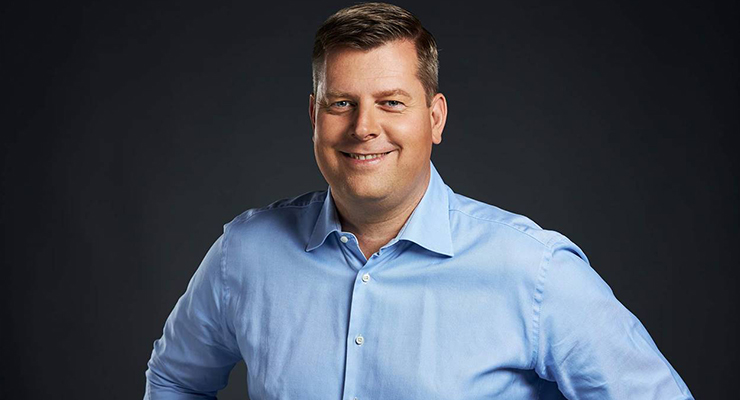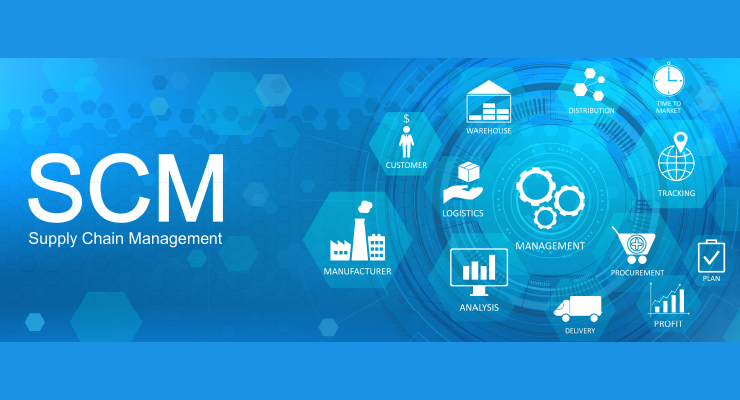Kerry Pianoforte, Editor02.10.22

Michael Friede Chief Commercial Officer – Performance Coatings, AkzoNobel
CW: Please tell me about your background and career.
Friede: I joined AkzoNobel in July 2021. I came from Covestro, a raw material supplier to the coatings industry, where I spent about 20 years. So I've been in the coatings industry, as well as experience in value chain POV. I've been responsible to lead the coatings and adhesives raw material business at Covestro, which gave me the opportunity over the years to get to know many of the related businesses.
CW: How do you manage supply chain shortages and customer needs?
Friede: I can give you a bit of our perspective and how we see things evolving. Even though it's not the most fun of all topics at the moment, it's on everyone's radar. So for us, of course, along with other coatings companies, we have committed additional resources to address surging customer demands. There was a lot of volatility coming from the huge initial slowdown as result of COVID and then speeding up three months later, very quickly and everyone having reduced stock levels at an all-time low.
People realized that, hey, the world is not ending. In fact, many consumers continue with their normal purchases, such as buying cars and other essential products. A lot of people still want to travel where it is possible. But surprise, products have been in short supply with basically the whole supply chain leading up to coatings and paint.
So that was the first thing that we've seen happening in the summer of 2020, I'd say. And we have not fully recovered from that supply chain situation, because of multiple events that seem to go beyond singular “Black Swan events” when considered in aggregate, but they were quite extraordinary. You had a ship stuck in the Suez Canal impacting all of Europe, then you had the Texas freeze placing the North American chemical manufacturing to a grinding halt. A lot of our raw material suppliers still to this day have not fully recovered from that. Then you have all of this in a situation where the demand for our products is totally intact. So we have a very disrupted supply chain paired with strong demand.
To be honest, I prefer managing the supply chain issues, while experiencing strong customer demands for our products. That’s not a bad problem to have. We see strong demand for coatings solutions around the planet. We see strong demand for paint as well and that is a positive message. So the world has not ended with COVID.
We've had though to digest quite some impact. In the third quarter alone, we estimate our top line has been negatively impacted by €100m due to supply constraints (mainly in N America and EMEA) and COVID restrictions (South Asia) with majority of the €100m from supply constraints.
We have experienced a high number of force majeures with our supplier base, and that is beginning to wane, thankfully.
And we've seen it move a bit from the larger volume products – the resins, titanium dioxides etc. to the smaller quantity but extremely essential type of additives that we are missing here and there. The sad story is: it doesn't help if you have the resin but you don't have the B components. It still doesn't allow you to produce the final coating product. You need the entire recipe to complete the customer’s order. What we've done, though is worked with our customer base on reformulating some of our coating products. You can do that in certain market segments. You can hardly do that in aerospace for example, where you have extended qualification and testing periods. But there are businesses with more flexibility where we worked with the suppliers and our customers in order to qualify alternative raw materials, reformulate certain coatings systems in order keep our customers afloat. So that willingness of our customers to collaborate on viable solutions is critical for us, and them, to be successful.
CW: How are you working to bring more sustainable solutions to market?
Friede: We consider ourselves to be quite strong when it comes to more sustainable coatings solutions such as waterborne technology and powder coatings. We continue to push the needle when it comes to sustainability. While in certain markets we had found it difficult to get the customers to try out something new, the raw material shortage helps a bit in that sense that they would rather try out something new that is available than have nothing at all. I'm an optimist and so I try to find the good things in the crisis and I think one of the positive contributions we see is a lot of customers are flexible when it comes to experimenting with new solutions. It’s good for us, good for the customer, and more importantly, good for the environment.
CW: Do you think the raw material situation will improve in the near term?
Friede: I think in terms of looking forward, we do expect a sequential ease of the raw material situation, but not before the end of the second quarter in 2022. We expect it to potentially be returning to what we would call a more normal situation in the second half of 2022. We right now though still calculate with raw materials being extremely short going into 2022.
I've been in the coatings industry now for 20 plus years. I have not experienced raw material shortage and subsequent cost increases like we are facing today. Extreme shortages, extreme price increases in excess of 30%. We have certain raw materials where prices have doubled, tripled, even quadrupled. Solvent prices have increased dramatically and of course it's a big job for the commercial teams that I'm responsible for in our company to pass on some of the raw material increases, where we simply cannot manage it any other way. In the third quarter we've increased prices by on average 9% year-over-year, which is unprecedented in our industry.
CW: What are the expectations for 2022 and beyond?
Friede: We expect price increases to continue in 2022.I believe that's a fair estimate considering expected raw material, logistics and energy prices as well as the experienced relative margin compression we had to digest. We will have to do more than in 2021 in order to catch up on the margins that we have lost.. We have been successful in increasing prices but not at the same speed yet as raw materials have increased so there's some catch up to be done into 2022.
CW: How has AkzoNobel adapted to the new remote work environment?
Friede: To a certain degree, this home office working style helped because it shortened the communication lines. We are focused on the health and well-being of our people as well. And what we have observed is our employees tend to jump from one call to another, sometimes without time to have a coffee in between or take a break working virtually. We have initiated programs to consciously ask our folks to take breaks and ask our managers to be good role models because we want to make sure that our people do not burn out. That is quite important. So a big initiative that we've kicked off is on employee health and well-being in this COVID environment, beyond giving a lot of flexibility to our teams around the globe. Some people feel obliged to be available all the time and we want to give people the peace of mind that it's totally OK to be offline as well. I mean, you have to take your breaks. It's a marathon not a sprint every day. That’s what we're focusing on here as well in order to make sure we have a healthy, motivated and rested team before they run the next marathon the following day.
(In terms of ) people leaving the company, we have experienced less attrition. In fact it’s been quite the opposite. Employee hires have increased versus 2020. We see growth and we forecast additional future growth especially in North America. That's why we've hired quite a few folks. Attracting new employees continues to be challenging though, especially in certain regions for our manufacturing positions. Our focus in 2022 is to ensure all employees know they are valued, needed and make significant contributions to our Grow & Deliver strategy.
We will be launching a hybrid way of working model as we adjust to the new normal in a COVID environment. Also, regardless of the pandemic, I think that's what a lot of folks are expecting us to do as well. It provides more flexibility in managing the work-life balance.
Michael Friede joined AkzoNobel in July 2021 as Chief Commercial Officer – Performance Coatings, where he is responsible for all Commercial activities of our Performance Coatings Segment. Before joining AkzoNobel, Michael was at Covestro where he was responsible for the Business Unit Coatings, Adhesives, Specialties. For the last 20 years, Michael held several positions across several geographies in the chemical industry within Covestro and Bayer AG in general management, sales & marketing, procurement and within corporate functions.
In September 2021, Michael was appointed to the Board of Pearl Polyurethane Systems LLC as a non-executive member. Before moving to the Netherlands, Michael lived & worked in the USA, Germany, France, Spain and Canada. Michael holds an MBA from Instituto de Empresa, Madrid, Spain and graduated in Business from the Fachhochschule für Oekonomie & Management, Essen, Germany. He completed Executive Business programs at the London School of Economics and at Oxford University and studied at the Rotman School of Management at the University of Toronto, Canada.


